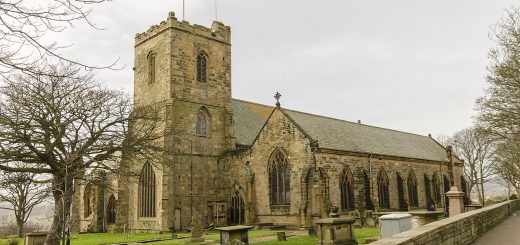Joseph Hempsall’s Ghost
Here’s an interesting piece of Cambridgeshire folklore I found in a book called “Folktales of the Fen Country”. Joseph Hempsall was a true born “Fen Slodger”. He lived in a small cottage on the Soham side of Wicken Fen during the late 17th century. Every evening Hempsall would cross the fen, known locally as “Big Bog” to drink with his friends at tavern in Wicken. One night when he was deep in his cup, a thick, unearthly mist descended on the area. It was so thick that Joseph’s friends begged him not to go home that night, but rather to take a room at the tavern and go home the next day. Hempsall wouldn’t have any of it. He was a hardy fenman and convinced he could make it home safely. He set off through the fog towards Soham.
When Hempsall didn’t return to he tavern for the next few days his friends began to worry. Two of them decided to visit Joseph’s house and make sure he was alright. They were met by Hempsall at the bank of the fen, but he was different. He was pale and gaunt and as they walked together he didn’t say a word until they reached the cottage gate, where he turned and announced “As I am now, so one day will ye be. Fetch me from Big Bog and bury me in Wicken Churchyard.” He then vanished into thin air, leaving his companions understandably shaken. On their way back to Wicken they found Joseph’s body at the spot where he’d appeared before, lying half in and half out of the reed-choked water with a terrified expression on his face.
Hempsall was buried in Soham Churchyard, but this apparently angered his spirit, and people began to see Hempsall’s doleful ghost, which would tell them “As I am now, so someday will ye be! Bury my bones in Wicken Churchyard or I will not rest!”
So many people were frightened by the apparition that his body was indeed reinterred at Wicken, and the haunting apparently ceased, although some claim that Hempsall still haunts the area, warning people that “As I am now, so one day will ye be!”




Re: Joseph Hempsall’s Ghost
The parish church in Wicken is dedicated to Saint Lawrence. Although some parts of it are 13th century , the church mostly 14th century. Henry Cromwell (Born 20 January 1628 – Died 23 March 1674), the forth son of Oliver Cromwell is interred under the altar.